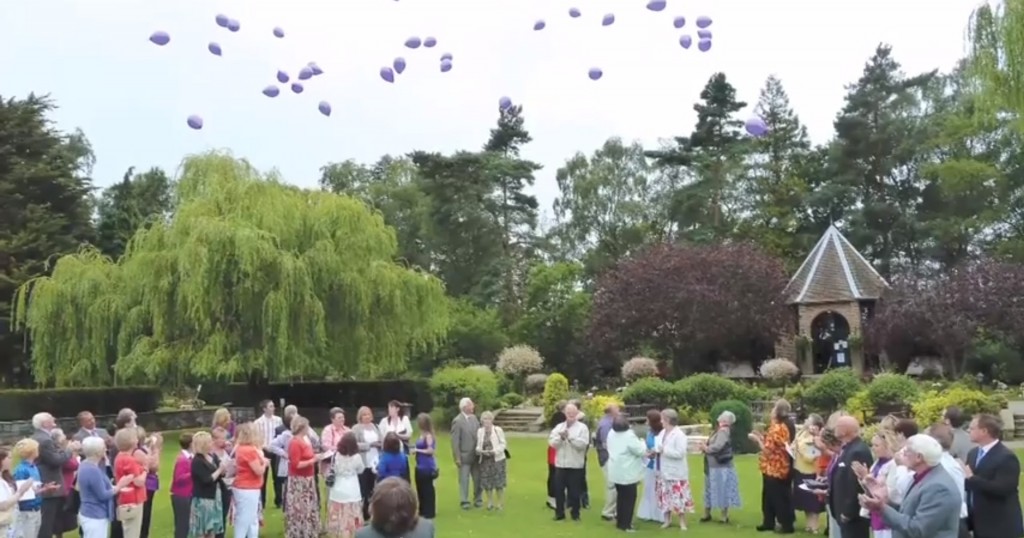Julian Sheather shares a personal story of easing his son’s bedtime terrors about death and the afterlife.
When he was eight, or thereabouts, my eldest son developed an intense fear of death. Without warning – at bedtime or waking in the quiet hours of the night – he would cry out in terror: ‘Daddy…I’ve got that terrible feeling again.’ My wife and I, although in fairness a little more often my wife than I, would take it in turns to console him. We would lie alongside him on his bed under the eaves – it seemed to help if it was raining – and try gently, clumsily, to soothe him. At times, seized with fear and disbelief, he would list all the people he loved – his grandparents, my wife and I, his friends, his younger brother (usually) – and almost physically wrestle with the knowledge that they were all, at some point, going to die.
Fear of death is infectious. Like most of us I suppose I have succeeded, most of the time, in pushing it to the margins of my mind. We may vaguely have heard that all philosophy is a preparation for death, but then not many of us are philosophers. Among healthy adults talk of death has a morbid, almost lavatorial quality: you tend to keep it to yourself. But ripped from sleep to confront a young boy’s – your own boy’s – appalled struggle with mortality, to hear him in the night confront so unprepared the basic terms of life, is a sobering experience. It rather throws you back on yourself.
During those long nights, the question of religious belief, of some possibility of an afterlife, inevitably came up. And I admit I struggled. There is a great deal of cheap, pre-fabricated criticism of religion knocking about at the moment. (There’s also a deal of cheap, pre-fabricated religion, but that’s another story.) If we are going to criticise any system of thought or belief then I figure we are obliged to take it in its best dress, at its richest and most serious. And fair to say that at its best religion addresses itself with great attentiveness to common human fears. Consider some of the great spiritual autobiographies: fear of death played its part in Tolstoy’s conversion; in Grace Abounding fear certainly had a heavy hand on John Bunyan’s tiller. So although there is a great deal more to religion than the weaving of tales to still our terrors, there is no doubt that for millennia religions have also spoken to our fear of death and helped structure a response to it.
I am not very good when I am tired. I remember saying to my son during one of his crises, casting around for something, anything that might help still his grief, that there were those (oh weaselling words) who believed in an after-life – words to the familiar effect that for some death is a horizon not a terminus. ‘But you don’t believe that, do you, Dad?’ he shot back.
I am not in the habit of lying to my sons, and I didn’t then. This is partly because, on the whole, I’d rather tell the truth. But also because lying would be pointless. They know me too well. My son’s response wasn’t a question, it was a statement. And so night after night we lay there together under the eaves until his anguish stilled itself and he fell asleep.
My son’s fear of death was with him on and off for several years. It took many forms. He would shield his eyes when we drove past cemeteries. He would suddenly call a halt to certain conversations. The TV would be switched off abruptly. He continued waking in the night cold with fear and my wife and I continued, clumsily, to console him. Somehow linked, he grew terrified of the severely disabled. He once bolted up the road when a disabled child was wheeled on a recumbent chair from our local surgery. Life was showing itself to him.
If I were writing this as fiction, this is not the ending I would choose. It is a little too pat. A friend gave me a book of philosophical puzzles. I can’t now remember why but my son was interested and I started to read them to him at bed time. He grew intrigued and I bought a version for children. And so we chatted about pigs that wanted to be eaten, and pills that made you win at everything, about rings that made you invisible and ships reassembled on the brilliant foreshore. And one night he looked up and said that his fear of death had gone: the puzzles had set flight to it.
It was one of those occasional, sun-lit moments you get as a parent when, groping around in the dark, you feel you’ve finally hit on something right. I am not quite so naïve as to believe that in philosophical paradox he had found a substitute for religion. Partly he was growing up. Looking back – this was a few years ago – it probably had a lot to do with the ordinary work of being a parent, the slow accumulation of all those nights, one slightly less-frightened human being consoling another. But I still like to think that in the face of some of life’s biggest fears, its most intransigent problems, he had found some of the breathing room that thought brings. And just recently he has told me he would like in the future to work with children – including the disabled.
